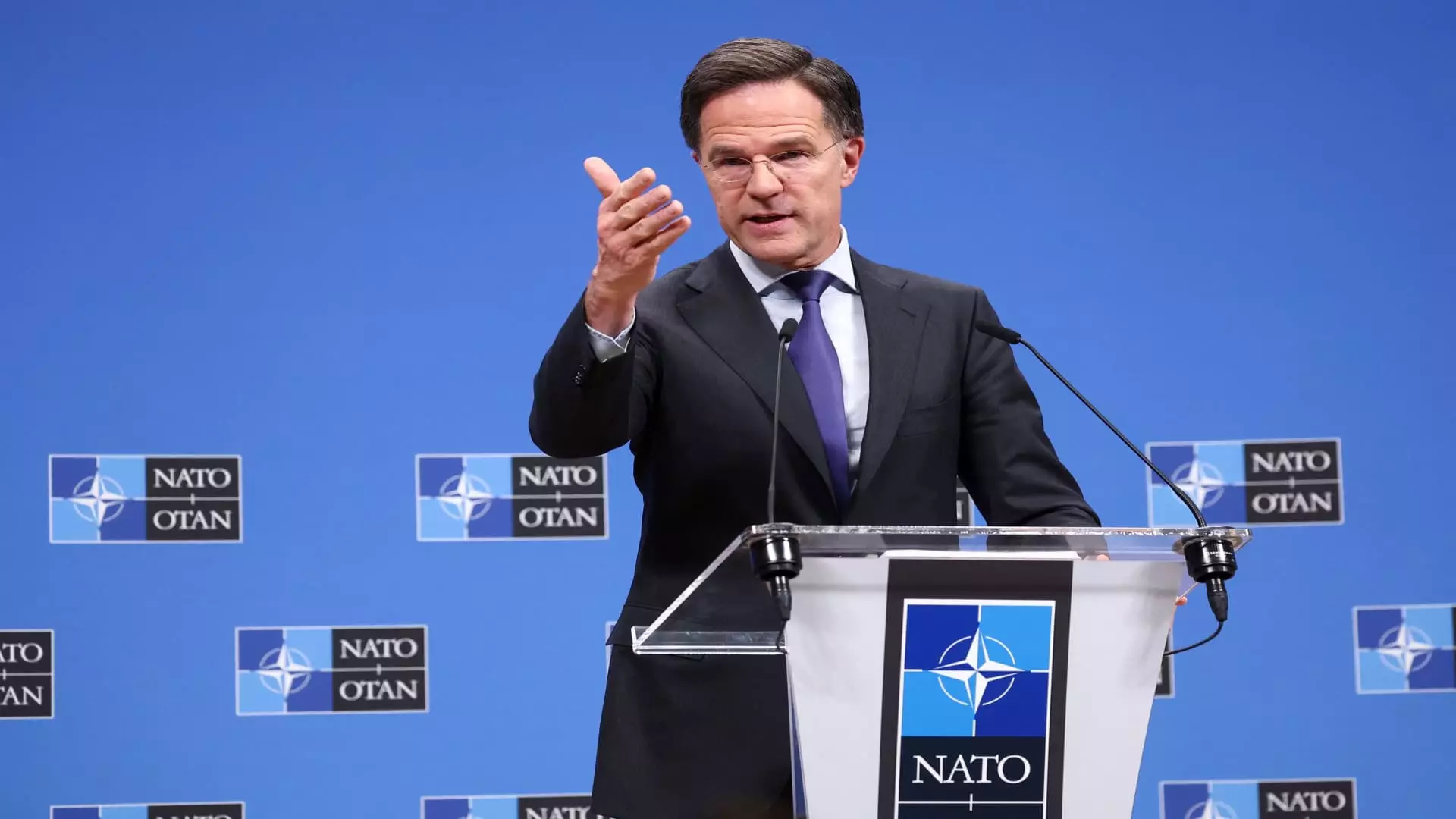In a recent speech delivered at the Munich Security Conference, NATO Secretary General Mark Rutte issued a clarion call to European member states: forsake complaints and engage in constructive dialogue to devise actionable solutions for collective security. Rutte’s emphatic message underscores a profound shift in the dynamics of the alliance, particularly in light of the United States’ evolving stance under current and impending leadership. By urging nations to move beyond rhetoric and actively participate in addressing security challenges, Rutte highlights a critical juncture where unity and proactive engagement are paramount.
The implications of Rutte’s message are significant. As geopolitical tensions continue to escalate, especially with Russia’s aggressive actions in Ukraine, NATO nations must step up to the plate. The Secretary General’s insistence on tangible proposals rather than mere grievances reflects an urgent necessity for a renewed commitment to defense collaboration among member states. The underlying message is clear: it is not enough to rely on historical commitments or external powers; each nation within NATO must cultivate its defensive capabilities to contribute effectively to the alliance.
Further complicating the landscape of NATO’s defense spending is the upcoming summit planned for June in The Hague, where a new agreement on defense spending targets is anticipated. With Secretary General Rutte hinting at figures potentially exceeding 3% of GDP for defense budgets, the implications of such targets are profound. Already, many NATO members are grappling with the ramifications of increased defense expenditures amid calls for economic recovery following the pandemic.
This development is particularly pertinent when analyzing the historical context of NATO spending. In 2018, only six allies met the then-target of 2% of GDP, while projections indicate that by 2024, 23 member states will align with this requirement. The disparity in defense spending among member nations raises intricate questions about fairness, resource allocation, and the future cohesion of the alliance. Analysts must consider how far this commitment will stretch, particularly regarding the sustainability of higher spending in the face of domestic political pressures and economic constraints.
The recent remarks from U.S. Senator Lindsey Graham added another layer to the discourse on defense cooperation within NATO. By asserting that Russian President Vladimir Putin has inadvertently strengthened the alliance through his aggressive policies, Graham presents an unusual yet compelling acknowledgment of how external threats can act as unifying agents. Putin’s actions have served as a catalyst, prompting NATO members to revaluate and increase their defense capabilities—a scenario that raises questions about the efficacy of NATO’s existing deterrence strategies.
Moreover, the specter of U.S. politics looms large over NATO’s future. Former President Donald Trump’s critical rhetoric towards member nations—insisting on substantial increases in their defense contributions—has reverberated through the alliance. His assertion that NATO countries should aim for a 5% GDP contribution raises the issue of practical viability. As NATO members navigate their national interests, the tension between defense obligations and domestic priorities remains a delicate balance.
As NATO members prepare for future challenges, a sense of urgency to innovate within the defense sector becomes evident. The geopolitical landscape is marked by rising threats from state and non-state actors alike, necessitating a reexamination of traditional security paradigms. As alliances become strained, and the U.S. shifts its focus under different administrations, NATO’s role as the cornerstone of transatlantic security must adapt.
For NATO to thrive, member states must embrace a holistic approach to defense spending that reflects not only increased financial commitments but also strategic cooperation among nations. This involves not just monetary support but also the sharing of technology, intelligence, and resources. In this intricate web of alliances, fostering mutual trust and understanding among NATO members is essential to counteract external threats effectively.
Mark Rutte’s call for actionable solutions comes at a critical moment in NATO’s history. The alliance must evolve to remain relevant in an increasingly complex global order. By addressing the dual challenges of increased defense spending and cultivating a collaborative spirit, NATO can reinforce its commitment to collective security. Member states must embrace this moment as an opportunity to forge stronger alliances, rethink strategies, and ultimately ensure that the organization remains a formidable force against any potential aggressors. In doing so, they not only safeguard their interests but also bolster the principles that underpin NATO as a collective bastion of security in an unpredictable world.


Leave a Reply